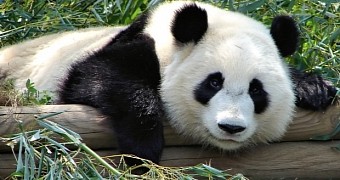These days, about 2,000 or so giant pandas are left in the wild and in captivity. Hence, the International Union for Conservation of Nature considers the species endangered.
Since getting giant pandas to make babies in captivity is tricky business, scientists desperate to save these furry creatures from going extinct are considering cloning whatever specimens live at zoos and parks around the world.
As it turns out, the science team that cloned Dolly the sheep now have their eyes set on Tian Tian and Yang Guang, a pair of giant pandas living at Edinburgh Zoo in Scotland.
Not long ago, the specialists collected tissue samples from both animals. They then used these samples to grow more cells carrying their distinct genetic profile, which is the first step to creating clones of the pandas, DM informs.
“This may be a source for a cloning project. People are wary about cloning and would rather go with conventional methods, but pandas are an anomaly because of their lifestyle.”
“This is a step in bringing back an endangered species or helping preserve them,” scientist Bill Ritchie, a member of the team who created Dolly the sheep, explained in an interview.
For now, there's no news on when exactly the team plan to attempt a cloning experiment. Still, they promise to let us know as soon as they decide to go the extra mile and try their hand at creating copies of Tian Tian and Yang Guang.

 14 DAY TRIAL //
14 DAY TRIAL //